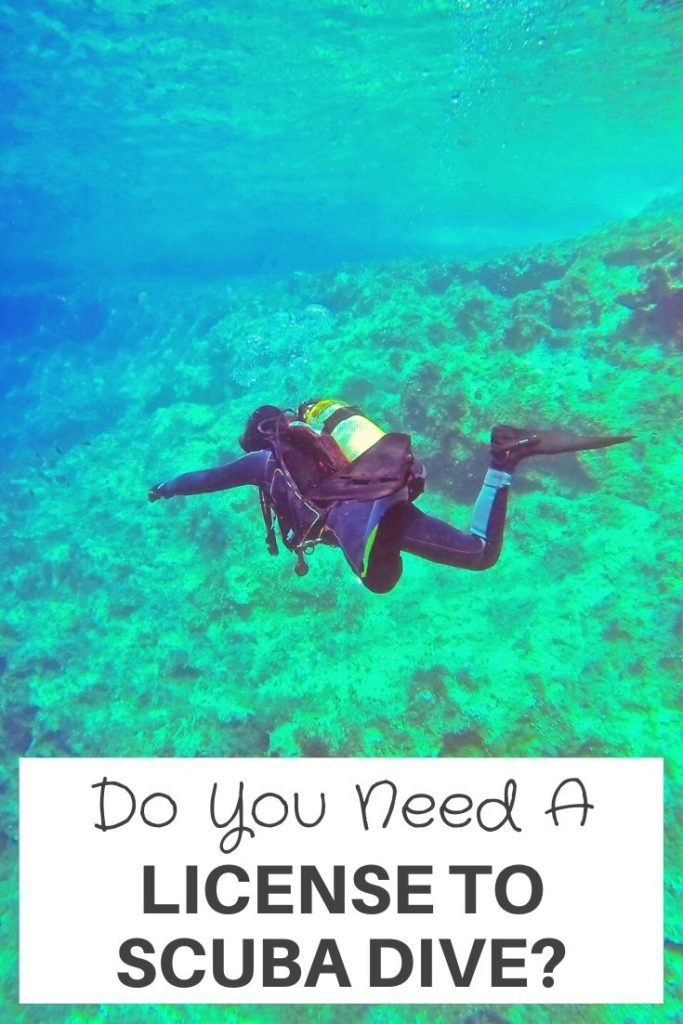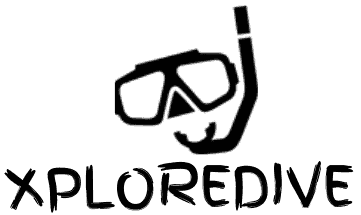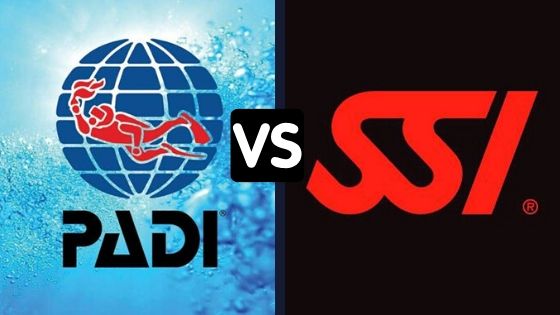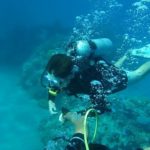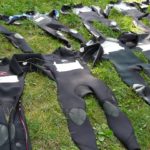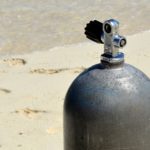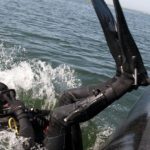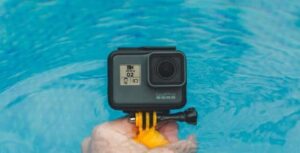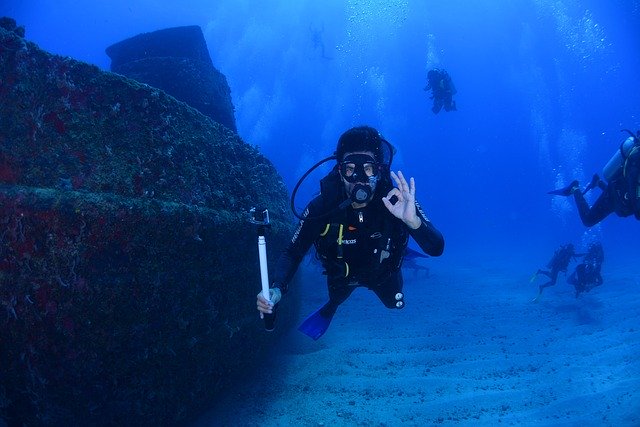
Scuba diving is an fun hobby to try. Scuba diving is at the center of many documentaries, films, and even video games like modern warfare. Yet when it comes to the real thing, the question comes up do you need a license to scuba dive?
It depends on the country as some countries are stricter than others. So Technically no, as Scuba diving is a self-regulated industry and therefore technically by law you do not need a license aka certificate to go SCUBA diving.
In this post, we will go through do you need a license to scuba dive. Let’s get started!
Do You Need A License To Scuba Dive?
Technically no, it depends on the country as some countries are stricter than others. Or if something goes wrong they could made an issue of the fact of not having a license.
Scuba diving is a self-regulated industry and therefore technically by law you do not need a license aka certificate to go SCUBA diving.
No, respectable dive shop will let you purchase the equipment you need or do fun dives with you, if you are not certified by a recognized organization, like SSI or PADI.
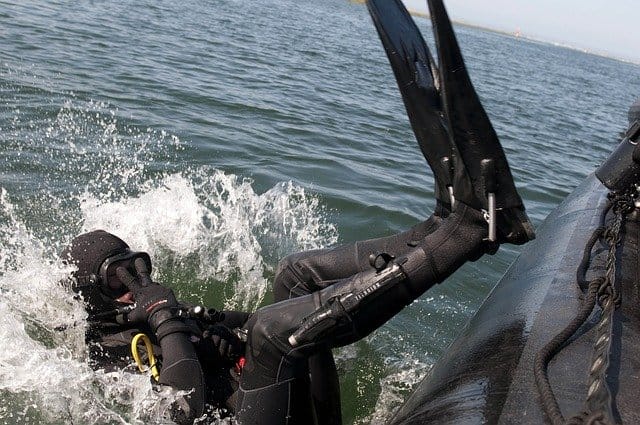
What Does Open Water Certified Mean?
The meaning of being open water certified is that they have a scuba diving license which is referring to the scuba open water certification. This allows the holder of the license to rent dive equipment and go on fun dives.
How Do I Get Scuba Certified?
While no respectable dive shop will provide the equipment or do fun dives with a person who cannot show a valid C-card (a small plastic card proving that you’ve taken the proper certification classes).
Thankfully, most dive shop operators provide courses to get the training required to get the dive cert. The three main certification programs are run as follows.
- Professional Association of Diving Instructors (PADI).
- Scuba Schools International (SSI).
- National Association of Underwater Instructors (NAUI).
How Much Does A Scuba Certification Cost?
To get scuba certified the costs can vary depending on the country and location where you are planning to get certified. The cheapest price starting from around $250 if in Koh Tao Thailand.
If planning to get scuba certified in Europe or the US, the prices can range from $500 to $950. The price includes all course material and rental scuba gear you need to complete the certification.
How Deep Can I Dive With An Open Water Certification?
With PADI and SSI, if you have the open water certification than it is 18 meters or 60 feet. And for the advanced open water diver certification, you can dive to 30 meters or 100 feet.
Do I Have To Buy SCUBA Gear?
Scuba gear is expensive especially for beginners but lucky most dive centers provide the gear with all the PADI courses. If you want to use a dive computer you will have to pay extra.
Who Can Take The Open Water Certification Course?
Scuba Diving is high activity and in general, there are basic health requirements such as asthma, other lung problems, or poor heart. Simply, you need to be in good health. Visit your doctor beforehand, to be on the safe side.
You need to be 15 years of age and older, to try and get the PADI open water certification. There is a Junior Open Water course that is for children as young as 10 or 12 years of age, depending on the country that is offering the course.

What Does The Open Water Certification Involve?
Getting open water certification from PADI involves 2 parts and can be completed over 2 to 3 days. The first is the basic theoretical you need to learn. The second is the practical where you will have to do 4 dives.
Part 1 - The Basic Theory of Scuba Diving
Learn the basic theory of scuba diving is an important part. This is fairly easy and you should not be too worried about this part of the certification. The theory covers techniques and skills you will need to go diving such as how to equalize your ears and pressure levels the deeper you go.
You have 2 options on how you want to do the theoretical part.
- Classroom sessions.
- Online learning.
Part 2 - The Practical
There is a test where you have swim 200 meters and then you have to float for 10 mins. The practical starts off where you have to complete and practice new skills such as removing your diving mask underwater and putting it back on with your dive instructor in the pool.
You will have to do 4 dives, with the first dive been the hardest as you will have to use the techniques learned in part 1 such as equalising your ears and controlling your breathing.
Once you have completed the 4 dives, you will get a logbook, a photo ID card and registered with PADI.
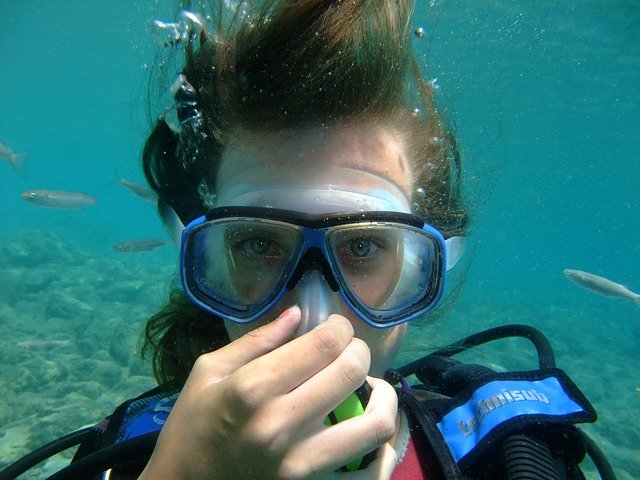
How Long Is The PADI Open Water Certification Valid For?
Your PADI certification is good for life but you can not have large gaps between your last dive to the present day. The same applies to SSI cert too. You need to do at least 1 dive within 12 months.
If there is a gap all dive centers provide you with a refresher session and dive. This will help you to become familiar with your equipment and how to use it once more.
Is Diving An Expensive Hobby?
Yes, the training and getting certification is your first main expenses. The costs vary depending on location but prices can range from $300 in Thailand to around $800 in Ireland.
If you do fun dives, that can cost around $40 each time but again the costs are depending on the location. Depending on how often you go diving, you may want to buy your own equipment instead of renting.
This involves buying all the scuba diving equipment from your own mask, fins, regulator, BCD, wetsuit, and so on can cost you from $1000 to $3000.The costs can depend on buying second hand or brand new.
There is the yearly expense of maintenance. There is no real need to buy your own tanks as nearly all dive shop has them to rent.
Wrapping Up
Finally, you may not by law be required to have an open water certification to go scuba diving but it would be extremely dangerous to go diving without the training. To get the open water certification is not hard and is worth the effort.
And that’s it for now! I’d love to know if this guide on do you need a license to scuba dive has helped you. Let me know if you have any questions and let me know if there is more to add.
Did you enjoy this post? Then don’t forget to pin it!
